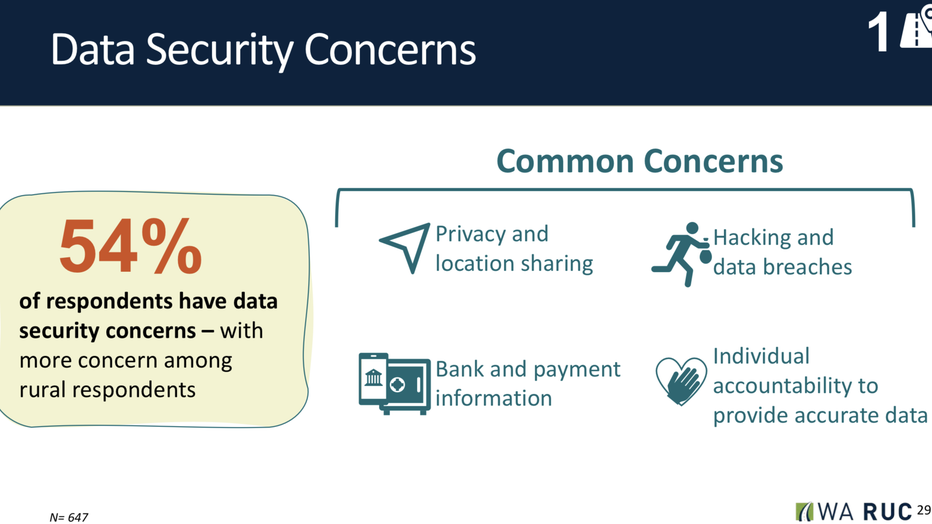Transportation officials discuss possibility of pay-per-mile tax in Washington

Washington considers pay-per-mile program to replace gas taxes
With the increasing amount of hybrid and electric vehicles already in the state and plans to mandate only zero-emission car sales in Washington by 2035, officials worry gas taxes will no longer be a viable option to pay for road repairs and infrastructure.
SEATTLE - Washington State transportation officials on Tuesday discussed how a per-mile tax on driving might be implemented to replace the current gas taxes.
For about 10 years, the state has researched the possibility of taxing people for every mile they drive, instead of the gas they buy.
With the increasing amount of hybrid and electric vehicles already in the state and plans to mandate only zero-emission car sales in Washington by 2035, officials worry gas taxes will no longer be a viable option to pay for road repairs and infrastructure.
Instead, some lawmakers are looking at the possibility of taxing people for every mile they drive.
The Washington Transportation Commission discussed data from more than 1,000 state drivers who took part in a "road usage charge" simulation.
The testers experienced what it would be like to pay taxes for every mile they drive.
According to the data, 70% of the people involved said they were satisfied with the road usage charge process.
However, the simulation also came with issues.
According to the report, drivers have privacy and location sharing worries and concerns trusting people to be honest with reporting their driving habits.

The data shows about 20% of the people involved in the simulation stopped paying their bill after the first cycle of testing.

The testers also question how private road driving and out-of-state driving would be calculated.
FOX 13 News spoke to one person who tells us they would have concerns about how equitable the tax would be.
"I would assume it’s probably going to hurt those people who have to commute a long ways, especially the lower-income people who can’t afford to live in Seattle, but still have to work in Seattle. You know, it’s probably going to hurt them more than the people who, obviously, have the means," said Patrick Barta.
Officials with the Washington State Transportation Commission say they hope to have a voluntary road usage charge program available by 2025.

